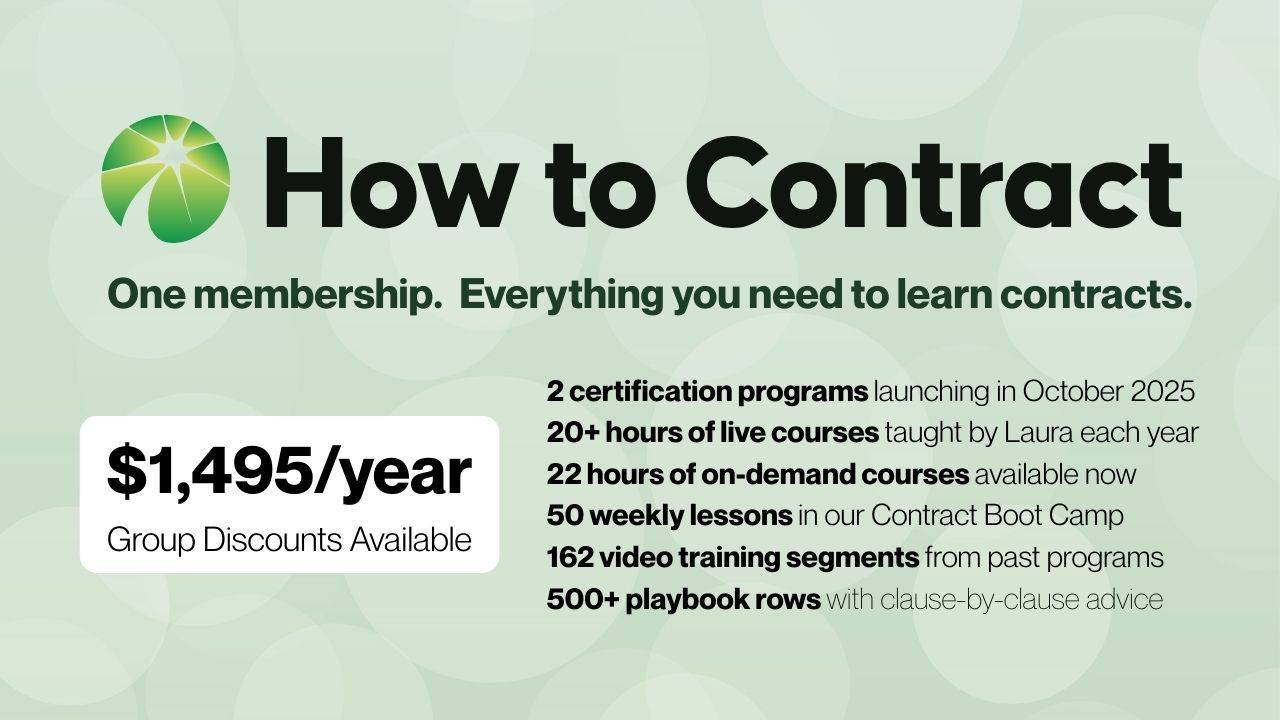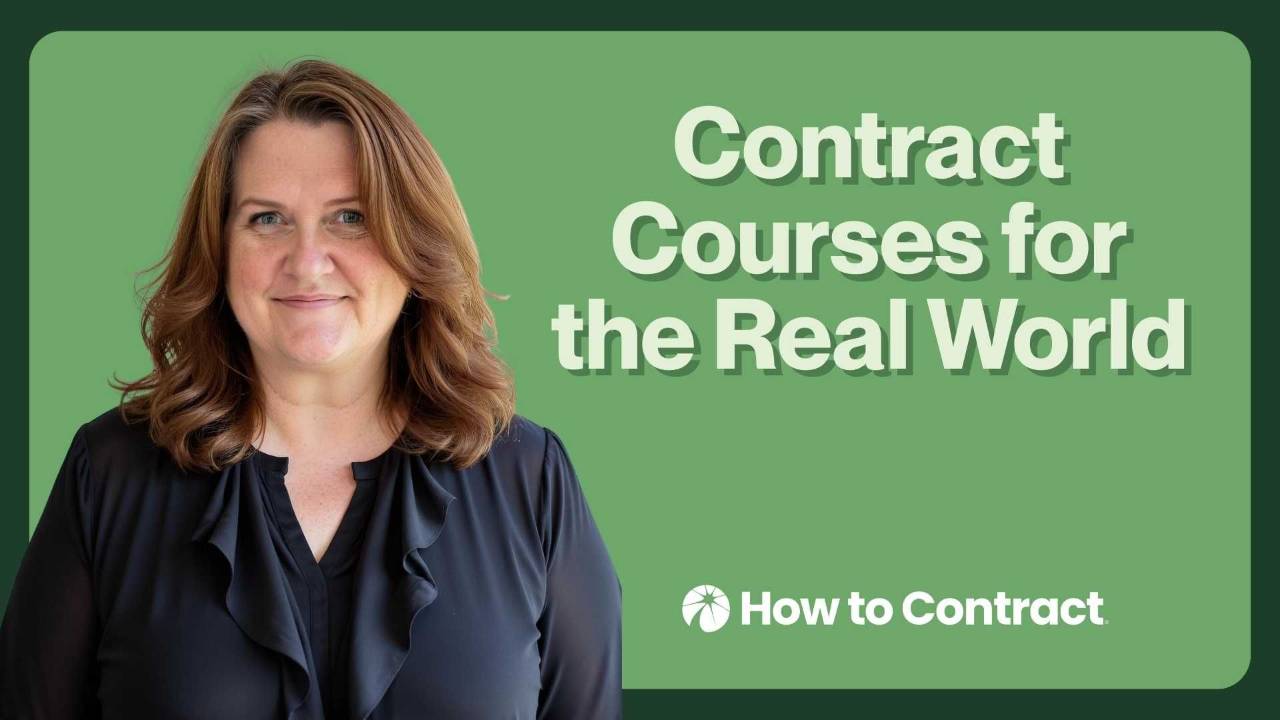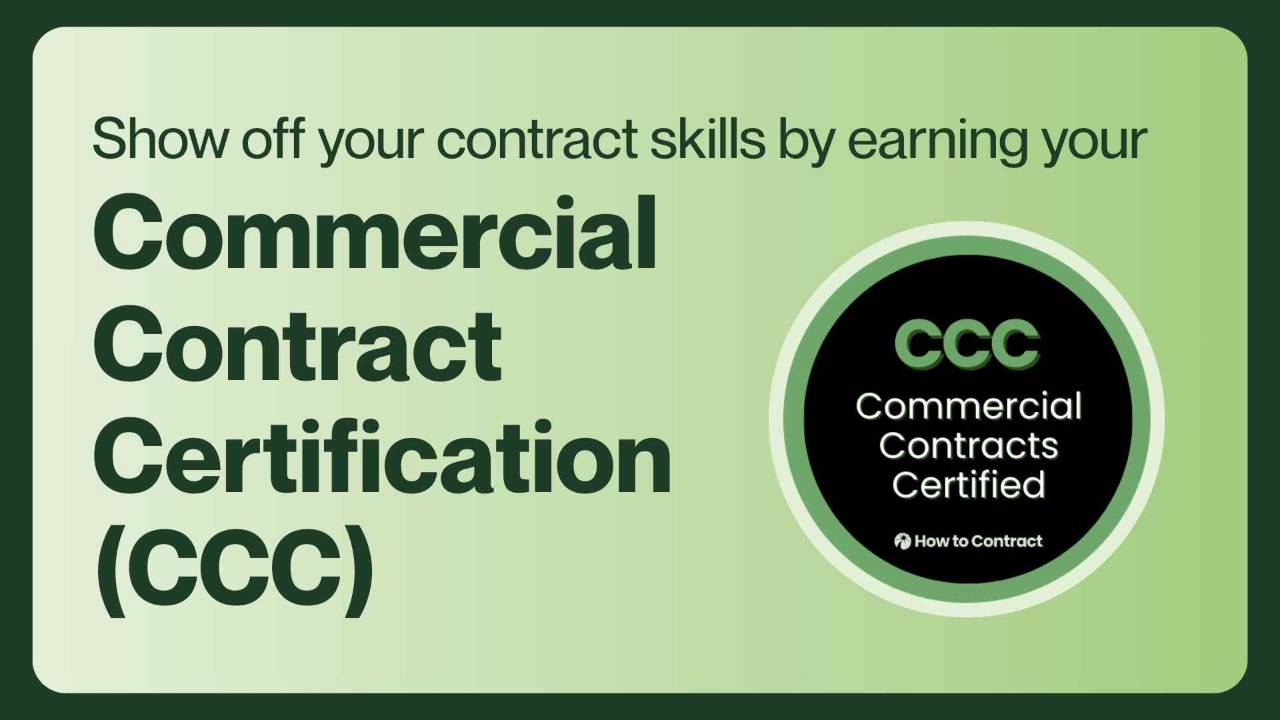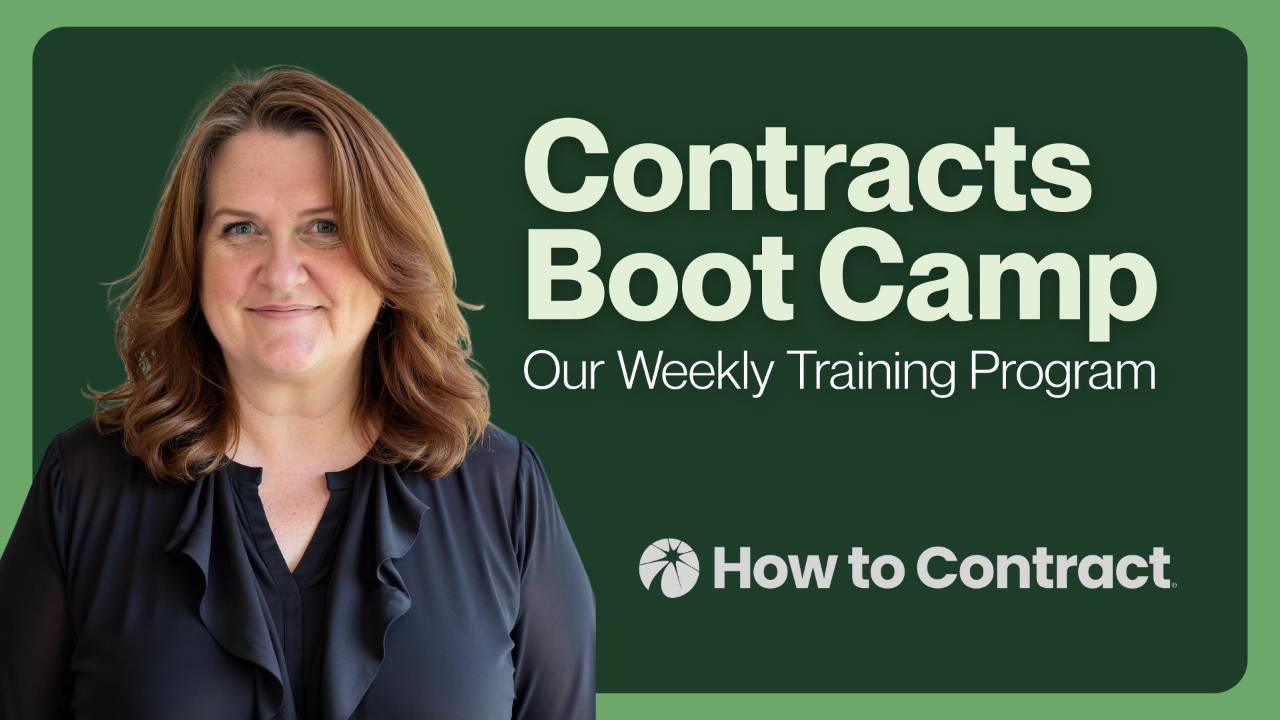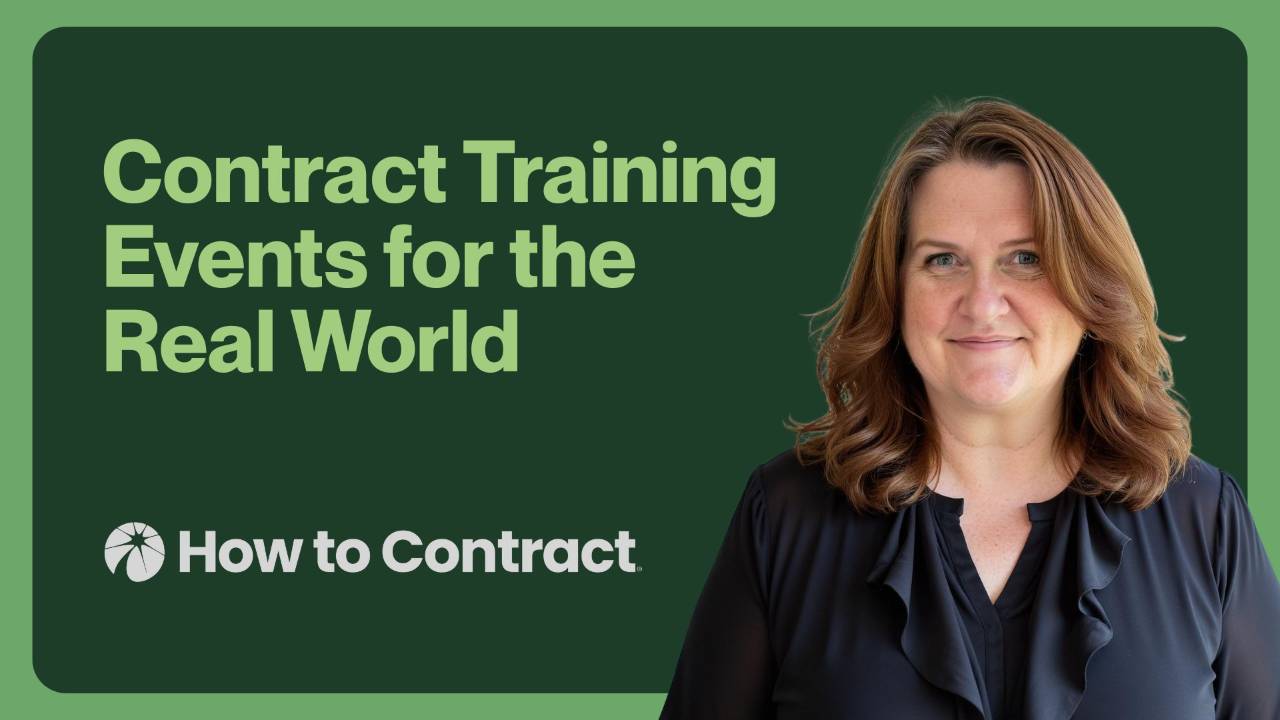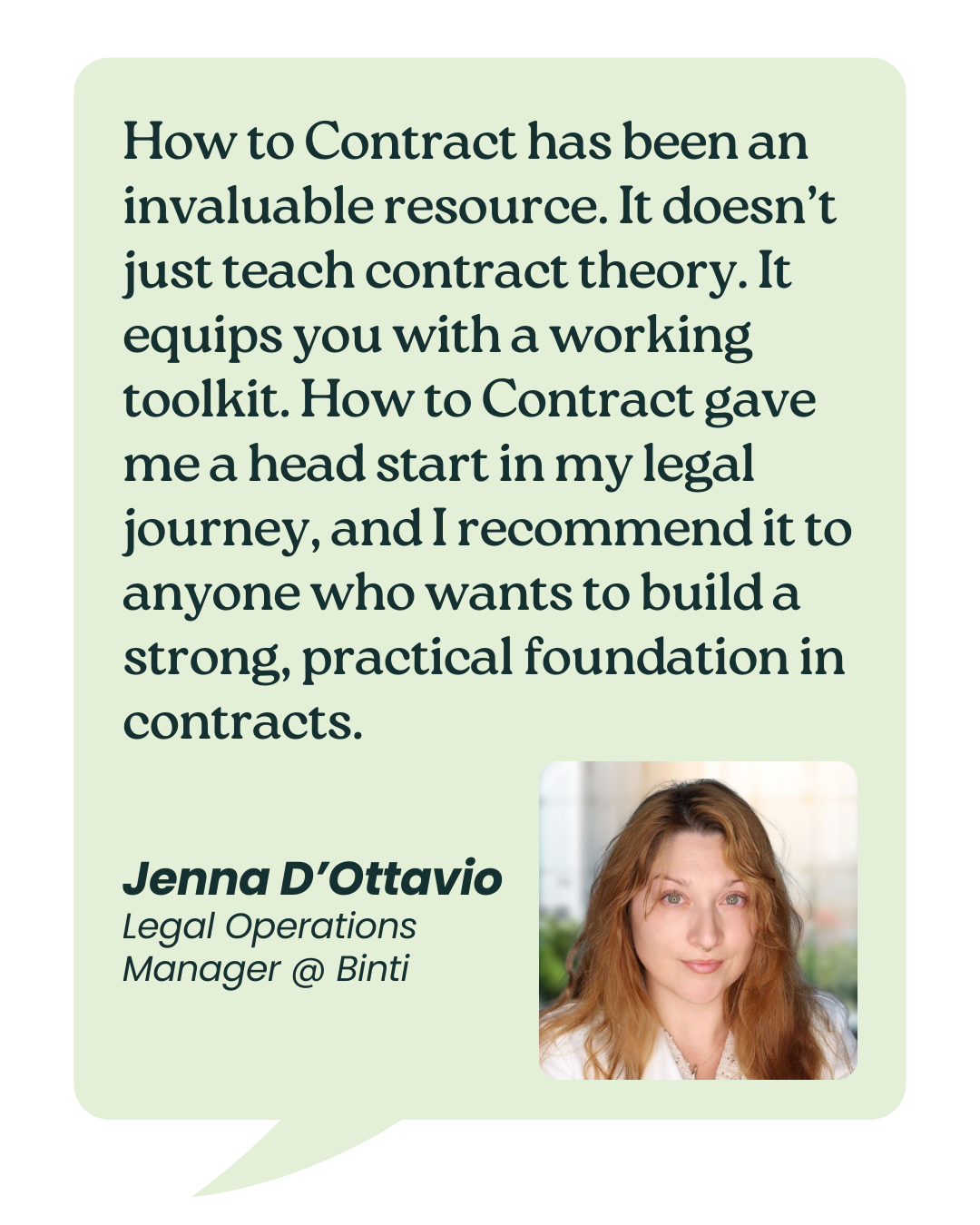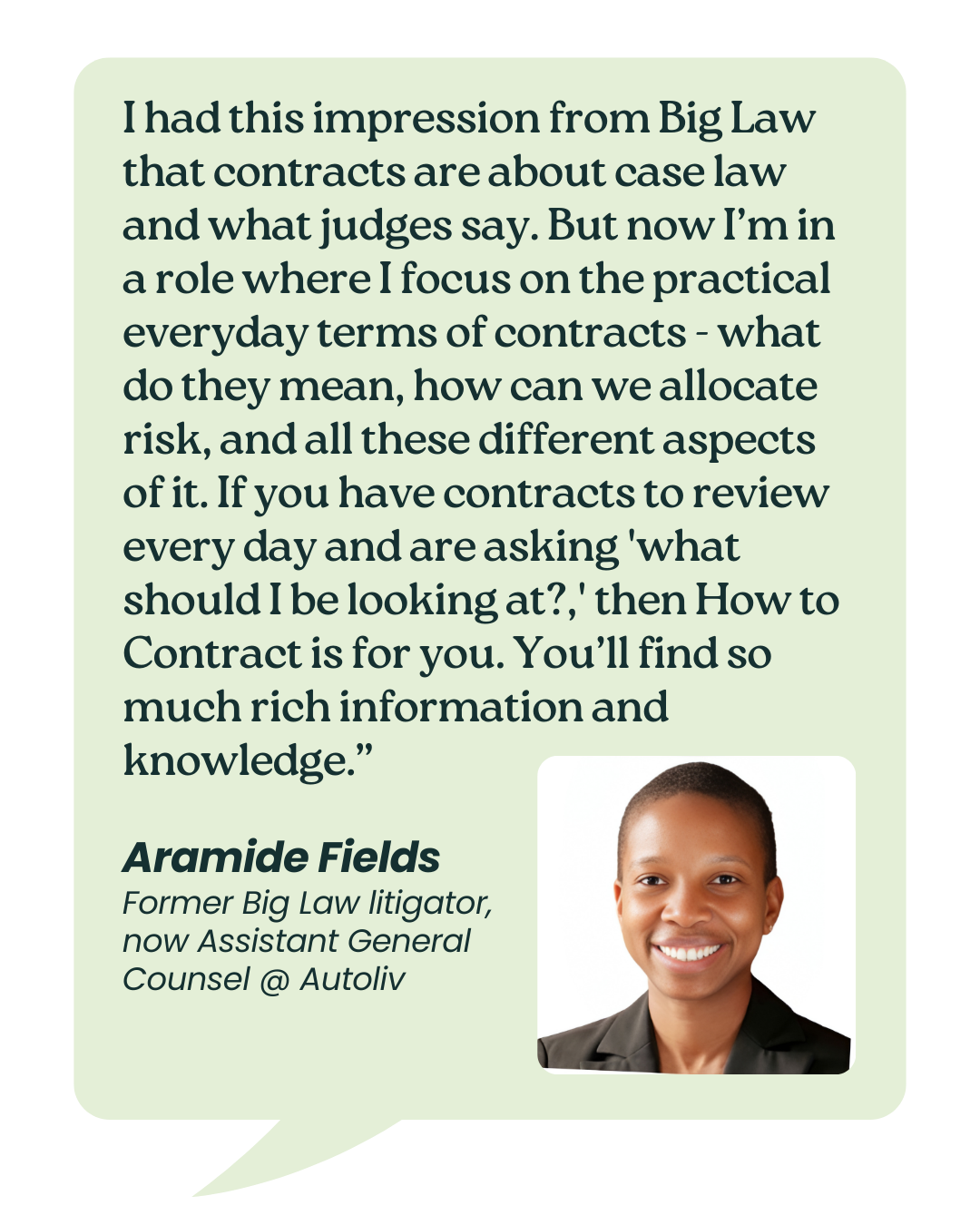
Contract advice: Do's and don'ts when you're just starting out
"What should you do on day one of working with contracts? What shouldn’t you do?"
These are the questions we've been asking experienced lawyers as part of our How I Contract interview series.
In this blog post, we've collected some of their answers to inspire you and show you how to get better at contract drafting and negotiation if you don't have a mentor.
Some of the tips may seem to contradict or repeat each other at first, but if you dig deeper, you'll see they complement one another.
Identify what resources are available to you
Breathe. On day one no one expects you to know everything. Each role plans for ramp-up time for a new employee. So don’t panic. Ask questions. Organize your thoughts and identify where you need help and then ask for that help.
As a bonus move, document and share your own ramp-up plan of what you’ll focus on in the first 30/60/90 days and then validate that with your manager and team. You’ll get them invested in your success and ensure you’re all trying to steer the boat in the same direction.
For the first 30-day plan, I’d suggest identifying what resources are available to you. Is there a template library? A knowledge base of approved clauses? A group of other legal professionals you can workshop ideas with? How does the team organize their work? What tips does each team member have for you?
Don’t silo yourself away and try to go it alone. And don’t try to hide mistakes. Almost everything can be fixed if you raise it up quickly and engage others to assist.
Sally Whitehead, the former Global Senior Director, Commercial Contracts & Legal Operations at Sophos.
Be pragmatic. Learn as much as you can about the business you are representing.
Even if you are in a law firm, a basic understanding of your client’s industry will help you write and negotiate better contracts than if you approach it from a strictly legal perspective.
What not to do: When drafting, avoid the temptation to fill the contract with every conceivable legal term. If the risk of a particular thing happening is very low, your client may be willing to accept the risk of not having it in their contract.
Same thing with negotiating. You will not end up with a “perfect” deal for either side. Focus on the areas that matter to your client and be prepared to concede on the lower-impact items.
Hebe Doneski, the founder at 108 Legal
Learn about the business, your coworkers, the clients, and the key contracts currently in place.
This helps set the foundation for future drafting and negotiations.
Don’t work on a contract without first understanding what work is happening under the agreement and how risk-averse you need to be.
Regarding the first point, sometimes it can be difficult to tell just by looking at the agreement what the parties are actually doing. The agreement might contain a lot of “boilerplate” with no specifics on the actual deal. You might need to look at presentations, quotes, or vendor websites to understand more. You definitely need to talk to your coworkers to make sure you know the full landscape. You can’t competently revise an agreement without first understanding the scope.
On the second point, the goal is usually not to make something zero risk.
The goal is to get the risk to a level that is acceptable. How risk-averse you are can directly correlate to the level of markup in the contract and the level of markup can correlate to how long it takes to negotiate the agreement. So, it’s very important to understand what level of risk is acceptable upfront.
Michelle Fleming, General Counsel for Bell Techlogix
Work on NDAs
Everyone needs to work on NDAs. They are foundational. And you need to do them efficiently. They never go away.
One thing to avoid is arguing the law. Legal arguments alone rarely prevail.
You have to have a deep understanding of your business, the value, risks, rewards, and the roadmap.
Winning a clause or language debate is way more often about who can articulate why certain terms are truly needed or not.
Andy Dale, General Counsel and Chief Privacy Officer at OpenAP
Understand the purpose of the contract you are drafting or reviewing
One of the most important things anyone working with contracts needs to do is understand the purpose of the contract they are drafting or reviewing: why are they drafting the contract and what is it for?
They need to specifically understand that purpose in relation to their client (including their organization if they are an in-house lawyer). You can only make a contract serve the needs of your client if you understand those needs and why you are drafting the contract.
Is it to protect your client? Achieve a certain risk allocation? Capture agreed terms? Place particular obligations on the other party? Usually, it’s all of these combined.
As for what you shouldn’t do…
Don’t just pull a template or precedent contract off the shelf and use it without having read and understood the contract and answered these questions.
Rachelle Hare, Director at Blaze Business & Legal
First, review any existing contract templates your company uses and note any provisions that you have questions about or would write differently.
When I started working with contracts and whenever I have switched employers, I first review any existing contract templates they use and note any provisions that I have questions about or would write differently.
I then review some of their existing client and vendor contracts and meet with a member of the company’s contracting/legal team to discuss their templates and the contracts they have negotiated to learn what is most important to the company.
Don’t say "This is what we did at my previous employer or what I learned at law school, we should do things this way..."
What you did elsewhere or what you learned in school might be the best way to do something, but you need to find out why the company/client you are working for is doing it differently first.
They likely have a good reason for their approach and if they don’t, you will likely want to discuss options to see what is best for their business needs.
Maureen Heisinger, Associate General Counsel at Eagle View
Always read through a whole contract first before starting to redline.
It is so easy to jump right into modifying an agreement to later see the same subject matter represented in a way that you would not necessarily have ordered it.
Something I would not do is delete entire sections of an agreement to replace with “our” boilerplate language on the same topic.
Katharyn Owen, VP, Senior Counsel at Planview
Get as much business context as you can.
You need to understand the purpose and commercial aims of the contract before you start redlining. You should also be proactive about improving processes for contract management and enablement.
Maybe you’ve spotted an outdated reference to law in your terms of service and can see they could use a general cleanup. Maybe you can see an inefficient process in how legal is engaged by business users and know a better one.
As a newbie, you have fresh eyes and a fresh way of thinking. So, don’t underestimate your value in that regard either!
In terms of what you shouldn’t do: don’t ever forget that, however new or junior, you are seen as a leader by business users and are more visible than you realize.
They desperately rely on you to help them achieve their business aims, often under pressure.
You have a chance to really shine here and market yourself and the legal team as great business partners.
Sarah Irwin, General Counsel at Tines and founder at Irish Tech General Counsel
Don’t read the agreements, but meet with the business.
Understand the products / services (selling or buying) and understand the risk profile of the business.
Also, discuss the standard positioning of the company and why.
What shouldn’t you do? Impose positions from your previous business onto the company without understanding the why, the risk tolerance, etc.
Jennifer Zador, General Counsel at Formstack
Learn the business before you learn the template.
Learn the customers, the margins, how your company makes money, who your competitors are, and what trends within the industry are. I’m not suggesting ignoring the contracts, but you can’t manage contracts WELL without having an understanding of what lies beneath.
From the practical side, survey ten contracts that make you money and five contracts that cost you money. Start with the commercial terms and then work through the boilerplate.
Krista Russell, Deputy General Counsel at Airbus OneWeb Satellites and Adjunct Professor Of Law at the University of Miami School of Law
How to Contract's membership is designed to help you build real-world expertise with commercial contracts. Get access to our comprehensive system of live and on-demand courses, weekly lessons, detailed playbooks, and more. Join today!

